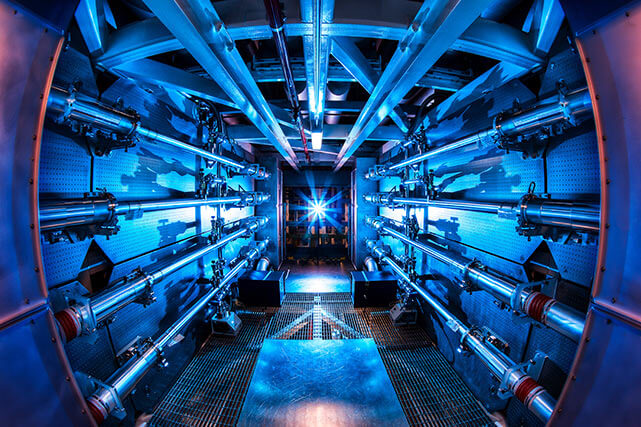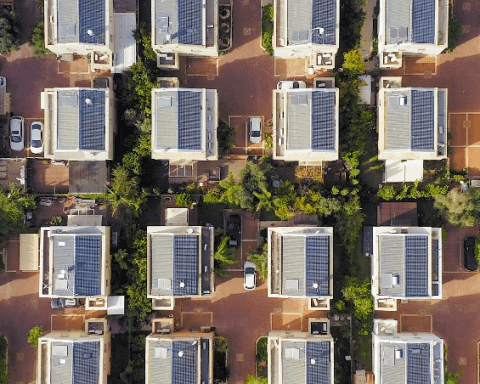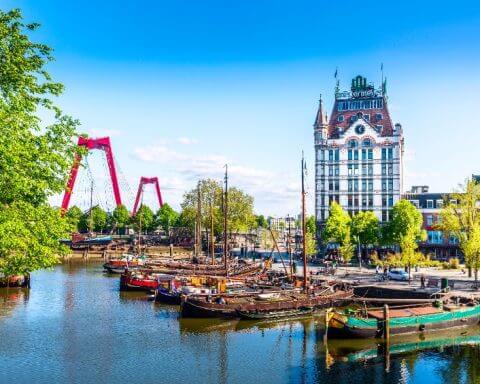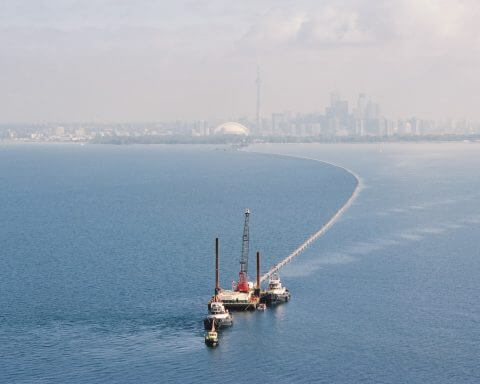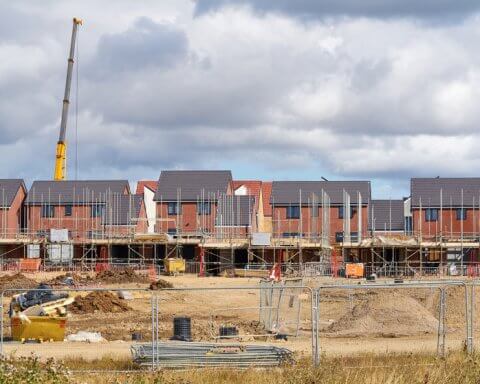Worker safety in Bangladesh
The Accord on Fire and Building Safety in Bangladesh, a legally binding agreement between 180 garment companies and unions, finished auditing 1,106 factories in Bangladesh yesterday. More than 80,000 health safety issues were found and 17 buildings were deemed structurally unsound.
The Accord was drafted in May 2013 after the collapse of the Savar building in Bangladesh killed more than 1,000 garment workers and injured more than 2,500 that same year. The Accord has already finalized 400 Corrective Action Plans to address the problems it is uncovering.
With over 6,000 factories in Bangladesh, these numbers are just the tip of the iceberg. Corporate Knights’ own Ashley Renders wrote about worker health and safety in the global supply chain today, finding that while third-party audits are important, it is imperative that companies stop demanding higher quality goods, in less time, at lower prices. Developing long-term relationships with workers is also crucial to understanding the day-to-day risks in factories around the world.
Oil prices
Without a doubt, plunging oil prices are the biggest energy story of the week. Experts are calling it a game-changer for national budgets in Russia, Iran, Libya and Saudi Arabia, not to mention pipeline projects in Canada and the United States.
A report by Deutsche Bank found that seven out of 12 OPEC member states are unable to balance their budgets once the price of oil falls below $100 per barrel. Russia, which is not an OPEC member, is also in trouble as oil makes up 70% of its exports and half of its federal budget. Venezuela, Iran, Nigeria and Iraq were already in the red at the beginning of 2014, leading Venezuela’s foreign minister to call for an emergency OPEC meeting.
Desertec
Oil wasn’t the only energy industry to lose money: a multi-billion dollar renewable energy project in the Middle East and African deserts was largely shelved this week due to lack of investor support. The Desertec Industrial Initiative was founded in Germany five years ago with aim of providing up to 15% of Europe’s power from solar and wind projects in North Africa and the Middle East by 2050. It was decided that the project would continue as a service company in both regions after only three out of 19 shareholders decided to stay on board at a meeting in Rome earlier this week.
Tax breaks
The Irish government will stop allowing U.S. companies, including Google Inc. and LinkedIn Corp., to avoid paying much of their income taxes. The government will stop accepting new entrants as of January, and companies currently enjoying tax breaks will see them end in 2020. The Globe and Mail reported that Google saved $2.5 billion (U.S.) on income taxes last year by collecting profits through an Irish subsidiary and routing them through royalties and other payments to a second Irish subsidiary in Bermuda, a tax haven. The change comes amid pressure from international regulators to conform to international guidelines.
Nuclear fusion
Finally, Lockheed Martin Corp. announced a technological breakthrough today on the nuclear fusion front. The company says it will be able to build reactors small enough to fit on the back of a truck within a decade. Lockheed has been working on the alternative energy project for four years and is now ready to work with industry and government partners. The company says that by harnessing the energy released during nuclear fusion, the technology could help to offset the rising demand for energy worldwide.
- CK Staff
- CK Staff
- CK Staff
- CK Staff
- CK Staff
- CK Staff
- CK Staff
- CK Staff
- CK Staff
- CK Staff
- CK Staff
- CK Staff
- CK Staff
- CK Staff
- CK Staff
- CK Staff
- CK Staff
- CK Staff
- CK Staff
- CK Staff
- CK Staff
- CK Staff
- CK Staff
- CK Staff
- CK Staff
- CK Staff
- CK Staff
- CK Staff
- CK Staff
- CK Staff
- CK Staff
- CK Staff
- CK Staff
- CK Staff
- CK Staff
- CK Staff
- CK Staff
- CK Staff
- CK Staff
- CK Staff
- CK Staff
- CK Staff
- CK Staff
- CK Staff
- CK Staff
- CK Staff
- CK Staff
- CK Staff
- CK Staff
- CK Staff
- CK Staff
- CK Staff
- CK Staff
- CK Staff
- CK Staff
- CK Staff
- CK Staff
- CK Staff
- CK Staff
- CK Staff
- CK Staff
- CK Staff
- CK Staff
- CK Staff
- CK Staff
- CK Staff
- CK Staff
- CK Staff
- CK Staff
- CK Staff
- CK Staff
- CK Staff
- CK Staff
- CK Staff
- CK Staff
- CK Staff
- CK Staff
- CK Staff
- CK Staff
- CK Staff
- CK Staff
- CK Staff
- CK Staff
- CK Staff
- CK Staff
- CK Staff
- CK Staff
- CK Staff
- CK Staff
- CK Staff
- CK Staff
- CK Staff
- CK Staff
- CK Staff
- CK Staff
- CK Staff
- CK Staff
- CK Staff
- CK Staff
- CK Staff
- CK Staff
- CK Staff
- CK Staff
- CK Staff
- CK Staff
- CK Staff
- CK Staff
- CK Staff
- CK Staff
- CK Staff
- CK Staff
- CK Staff
- CK Staff
- CK Staff
- CK Staff
- CK Staff
- CK Staff
- CK Staff
- CK Staff
- CK Staff
- CK Staff
- CK Staff
- CK Staff
- CK Staff
- CK Staff
- CK Staff
- CK Staff
- CK Staff
- CK Staff
- CK Staff
- CK Staff
- CK Staff
- CK Staff
- CK Staff
- CK Staff
- CK Staff
- CK Staff
- CK Staff
- CK Staff
- CK Staff
- CK Staff
- CK Staff
- CK Staff
- CK Staff
- CK Staff
- CK Staff
- CK Staff
- CK Staff
- CK Staff
- CK Staff
- CK Staff
- CK Staff
- CK Staff
- CK Staff
- CK Staff
- CK Staff
- CK Staff
- CK Staff
- CK Staff
- CK Staff
- CK Staff
- CK Staff
- CK Staff
- CK Staff
- CK Staff
- CK Staff
- CK Staff
- CK Staff
- CK Staff
- CK Staff
- CK Staff
- CK Staff
- CK Staff
- CK Staff
- CK Staff
- CK Staff
- CK Staff
- CK Staff
- CK Staff
- CK Staff
- CK Staff
- CK Staff
- CK Staff
- CK Staff
- CK Staff
- CK Staff
- CK Staff
- CK Staff
- CK Staff
- CK Staff
- CK Staff
- CK Staff
- CK Staff
- CK Staff
- CK Staff
- CK Staff
- CK Staff
- CK Staff
- CK Staff
- CK Staff
- CK Staff
- CK Staff
- CK Staff
- CK Staff
- CK Staff
- CK Staff
- CK Staff
- CK Staff
- CK Staff
- CK Staff
- CK Staff
- CK Staff
- CK Staff
- CK Staff
- CK Staff
- CK Staff
- CK Staff
- CK Staff
- CK Staff
- CK Staff
- CK Staff
- CK Staff
- CK Staff
- CK Staff
- CK Staff
- CK Staff
- CK Staff
- CK Staff
- CK Staff
- CK Staff
- CK Staff
- CK Staff
- CK Staff
- CK Staff
- CK Staff
- CK Staff
- CK Staff
- CK Staff
- CK Staff
- CK Staff
- CK Staff
- CK Staff
- CK Staff
- CK Staff
- CK Staff
- CK Staff
- CK Staff
- CK Staff
- CK Staff
- CK Staff
- CK Staff
- CK Staff
- CK Staff
- CK Staff
- CK Staff
- CK Staff
- CK Staff
- CK Staff
- CK Staff
- CK Staff
- CK Staff
- CK Staff
- CK Staff
- CK Staff
- CK Staff
- CK Staff
- CK Staff
- CK Staff
- CK Staff
- CK Staff
- CK Staff
- CK Staff
- CK Staff
- CK Staff
- CK Staff
- CK Staff
- CK Staff
- CK Staff
- CK Staff
- CK Staff
- CK Staff
- CK Staff
- CK Staff
- CK Staff
- CK Staff
- CK Staff
- CK Staff
- CK Staff
- CK Staff
- CK Staff
- CK Staff
- CK Staff
- CK Staff
- CK Staff
- CK Staff
- CK Staff
- CK Staff
- CK Staff
- CK Staff
- CK Staff
- CK Staff
- CK Staff
- CK Staff
- CK Staff
- CK Staff
- CK Staff
- CK Staff
- CK Staff
- CK Staff
- CK Staff
- CK Staff
- CK Staff
- CK Staff
- CK Staff
- CK Staff
- CK Staff
- CK Staff
- CK Staff
- CK Staff
- CK Staff
- CK Staff
- CK Staff
- CK Staff
- CK Staff
- CK Staff
- CK Staff
- CK Staff
- CK Staff
- CK Staff
- CK Staff
- CK Staff
- CK Staff
- CK Staff
- CK Staff
- CK Staff
- CK Staff
- CK Staff
- CK Staff
- CK Staff
- CK Staff
- CK Staff
- CK Staff
- CK Staff
- CK Staff
- CK Staff
- CK Staff
- CK Staff
- CK Staff
- CK Staff
- CK Staff
- CK Staff
- CK Staff
- CK Staff
- CK Staff
- CK Staff
- CK Staff


